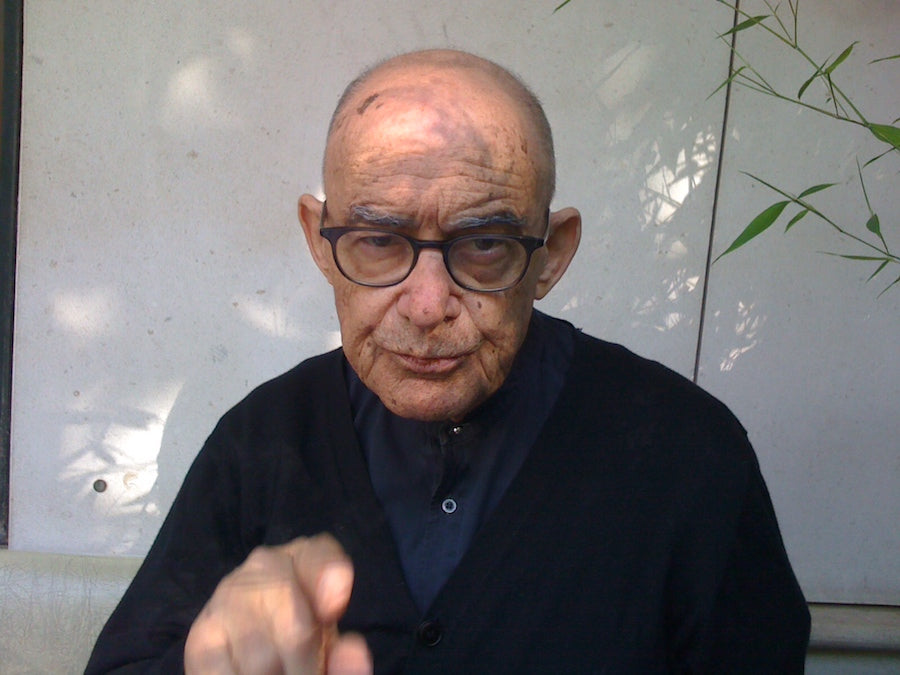Monotheistic Secularism
Jean-Luc Nancy on religion in the modern world.

It is surprising, to say the least, to see the words ‘secularism’, ‘religion’ and ‘monotheism’ fill the columns of newspapers without (so far, it seems to me) their concepts being in any way removed from the received, sedimented and ossified meanings of the dominant ideology. This is surprising, in any case, on the part of those whose mission – if I may dare to use that term – should be to dissolve ideological calcifications in the acid of thought. It is surprising, and presents a certain obstacle to reflection.
That the word ‘secularism’ comes straight from the Christian vocabulary is not just a historical curiosity. It is also a mark on the concept. The ‘layman’ of the Catholic Church is the man of the people (laos) among the faithful, as distinct from the cleric. The laos designates the people who are united, not by territory or heritage, nor by humble condition (neither demos, nor genos, nor plebs), but by a common commitment: they are a company or an assembly.
Considered from the standpoint of what the Roman Church calls the magisterium, the laity are subordinate. But, from the standpoint of the ‘people of God’, they are the very subject of faith. Certainly, the Reformation did much to radicalise this opposition. The distinction is nonetheless prevalent in Catholicism itself, and is lawfully established in all three monotheisms: the people, the community, the umma, constitute the space and the actor of faith, whereas any kind of authority is merely its representation and instrumentation. In other words, faith is the act of each and every person, and is never simply confused with the observance of a text or a ritual under priestly authority. It is not surprising that the ‘secularity’ of a state forbids it to support the authority of any hierarchy and obliges it to free the space of faith for all.
This principle thus fulfils a provision inscribed at the heart of monotheism, that of the distinction between Caesar and God, between a kingdom of this world and another kingdom of a different kind. However much it may have been abused, and however confused the doctrine may appear, the distinction between the two orders is valid in Judaism, in Christianity and in Islam. Only tendentious interpretations can seek to lead back to pure theocracy what is separated from it in principle and in the final analysis, whether in the kingship of Israel, in the sovereignty of the ‘Most Christian King’ or even in the Caliphate of Islam. (As for the ‘theological-political’, we regularly forget in using this term, taken from Spinoza as well as from Schmitt, and whatever the difference between them, that it refers to a principled dissociation of the two orders rather than to their consubstantiality).
Now, this profound and basically unitary disposition of the monotheistic triple is combined with another disposition which is no less ignored by ideology. Theocracy, in fact, presupposes gods of a different nature from the one God. The latter is not ‘one’ in the sense of ‘alone in front of the others’. He is ‘one’ in excess of any numerical assignment and any location. He is ‘the one’ removed from any availability as presence, as identity or as any kind of being. This ‘God’ is not ‘a god’. Which is why Schelling, who knew something about ‘the philosophy of revelation’, could write: ‘Monotheism is an atheism.’
In fact, there is no trait more common to the three spiritualities of the ‘people of the Book’ than the fundamental impossibility of identifying ‘God’: of identifying him with anything or anyone, and above all with himself. He is a god to whom we must ‘pray to make us free and freed of God’ (Meister Eckart); to the question: ‘Who are You?’, he answers ‘You!’ (Hallaj); and when he speaks, it is in a ‘sound of sheer silence’ (Elijah).
The fact that Church apparatuses and religious hierarchies have constantly sought to capture the faithful for their own benefit by identifying the unidentifiable does not prevent the West from having given itself, through this ‘god’ of estrangement, disappropriation and demythologisation, this culture of the unspeakable and of abandonment, one of its most intense lines of thought and conduct.
The three monotheisms are certainly not mutually translatable without a residue. But what they have in common is untranslatable in terms of ‘religion’. This is indeed why the secular space here is open as a space removed from all sacred authority, from all sacralisation of any kind of authority, including that of the law. But thus removed in order to remain open to testimonies of an incommensurability, individual and collective, between us and any human or divine law.
No specific application follows from this, but only an irreducible demand to think in the measure of the incommensurability that we are.
Translated by David Fernbach